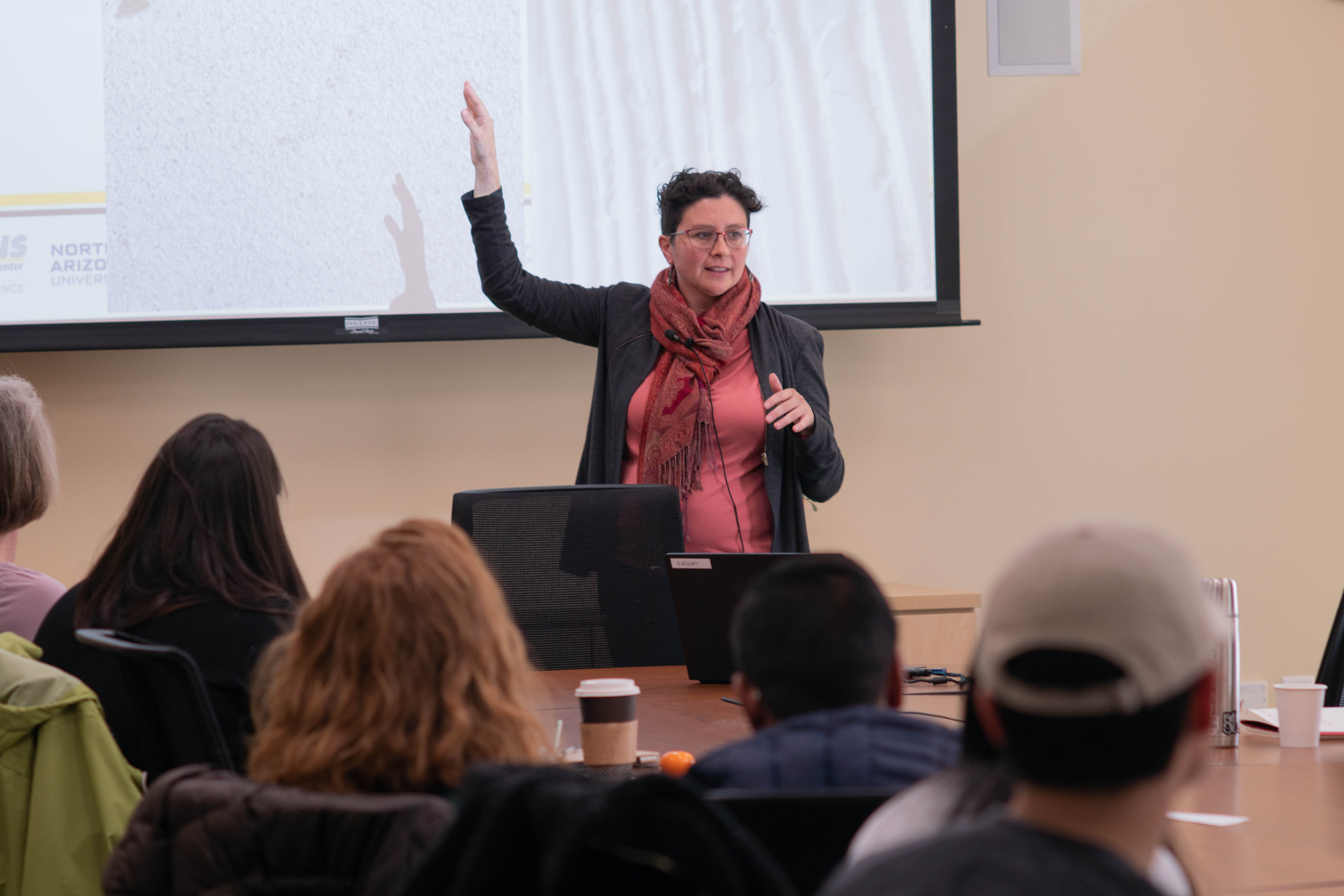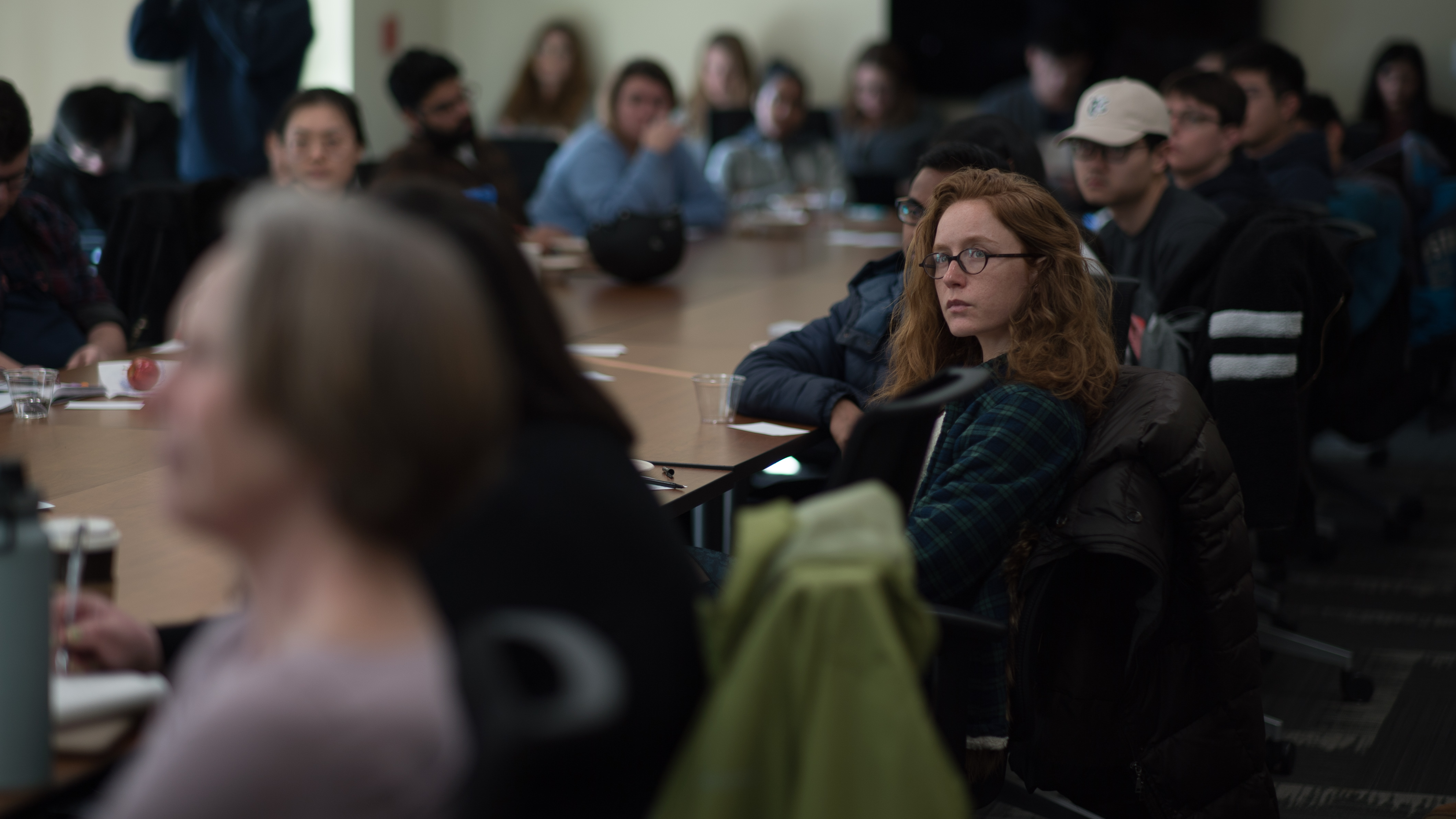News | Feminist Research Institute's Sarah Rebolloso McCullough Discusses Equity & Justice in Bicycle Research, Planning, & Advocacy
Stop the VideoNews

METRANS UTC
Feminist Research Institute's Sarah Rebolloso McCullough Discusses Equity & Justice in Bicycle Research, Planning, & Advocacy
Monday, February 25, 2019
by By: Seth Karten, UC Davis
As cities and towns develop policies and infrastructure to accommodate the growth of shared, electric, and traditional bicycles, it is crucial that researchers, planners, and policymakers consider the wide range of experiences and needs among bicyclists. To address this, the February 15 seminar hosted by the Institute of Transportation Studies at UC Davis (ITS-Davis) focused on strategies for making bicycle research, policy, and advocacy more equitable, inclusive, and just.
Dr. Sarah McCullough of the UC Davis Feminist Research Institute (FRI) was the featured speaker at the seminar, sponsored through ITS-Davis’ partnership with the Pacific Southwest Region University Transportation Center.

The seminar, entitled “Equity, Justice, and Sociocultural Research on Bicycling Transportation,” emphasized how dialogue between qualitative researchers (e.g., ethnographers) and quantitative researchers (e.g., transportation modelers) and a shared knowledge of both fields will lead to better research.
McCullough summarized a recent study in which she and colleagues analyzed the literature on qualitative and quantitative bicycle research and found surprisingly little overlap between the two. Qualitative studies were generally published in books, under fields such as anthropology, sociology, and cultural studies, while quantitative studies appeared in journals on transportation studies, health and medicine, geography, and urban studies and planning.
Based on the literature analysis, McCullough recommended several strategies that we, as researchers, could implement to improve our work:
- Develop a sense of partial perspective. Increased awareness and forthright communication about how our personal, cultural, and professional background influence our interests, the questions we ask, and our methodology can lead to better, more honest research.
- Attend to history, context, and power. We, as researchers, should be aware of and consider local history?including real estate discrimination?in the regions where we study transportation. In addition, we should consider “invisible cyclists”?bicyclists traditionally overlooked by advocacy groups, who tend to be non-white, immigrant, and/or poor. Finally, we should be aware of power dynamics, in terms of who is included and excluded from having a voice in policy and planning decisions.
- Think intersectionally. We should consider how different aspects of identity?such as gender, ability, religion, nationality, sexuality, class, race?overlap and interact to shape experience.
- Representation matters: Pictures of who we show biking implies who should be biking. For example, images of “vehicular cycling”?the practice of riding bikes on the road in a manner that imitates motor vehicles?may be incompatible with how many people, such as children and families, ride.

Sarah McCullough, Ph.D. is the associate director of FRI, a lecturer in Science and Technology Studies and an affiliate of ITS-Davis. She conducts sociocultural research on mobility justice and transportation equity, particularly as it relates to sustainable and active transportation. Her areas of expertise include the influence of culture on science and technology, with a focus on technological innovation.
You can view a full recording of McCullough’s talk, part of ITS-Davis’ weekly seminar series, by clicking on Watch Video at the URL: https://its.ucdavis.edu/seminar/february-15-2019/
About the Author:
Seth Karten is the Science Writer at the Institute of Transportation Studies at UC Davis (ITS-Davis).
News Archive
- December (1)
- November (6)
- October (4)
- September (2)
- August (3)
- July (4)
- June (3)
- May (7)
- April (8)
- March (11)
- February (8)
- January (7)
- December (7)
- November (8)
- October (11)
- September (11)
- August (4)
- July (10)
- June (9)
- May (2)
- April (12)
- March (8)
- February (7)
- January (11)
- December (11)
- November (5)
- October (16)
- September (7)
- August (5)
- July (13)
- June (5)
- May (5)
- April (7)
- March (5)
- February (3)
- January (4)
- December (4)
- November (5)
- October (5)
- September (4)
- August (4)
- July (6)
- June (8)
- May (4)
- April (6)
- March (6)
- February (7)
- January (7)
- December (8)
- November (8)
- October (8)
- September (15)
- August (5)
- July (6)
- June (7)
- May (5)
- April (8)
- March (7)
- February (10)
- January (12)















